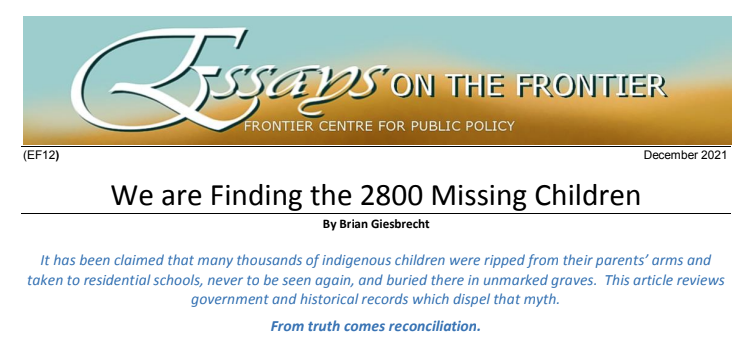The “secret graves” and “missing children” narrative had our national flag flying at half-mast for over five months after an obscure indigenous politician made the startling claim that she “knew” that 215 indigenous children had been secretly buried in the “apple orchard” on their Kamloops reserve.
Chief Rosanne Casimir said she “knew” this because “Knowledge Keepers” told her of “oral histories” of 6 year olds being hauled from their beds at the Kamloops Indian Residential School (KIRS) in the middle of the night to bury fellow students in the “apple orchard”.
But since that startling announcement, we have learned of problems with that claim. It appears that the claim that the “remains of 215 children, some as young as three years old” were found is a conspiracy theory that has been floating around for the last 30 or so years. More on that later.
But the more sophisticated audience, that doesn’t really believe that thousands of indigenous children were massacred and secretly buried by the light of the moon, is still swayed by claims that death rates from disease at residential schools were vastly higher than on the reserves of that era. But is that true?
READ THE ESSAY HERE


